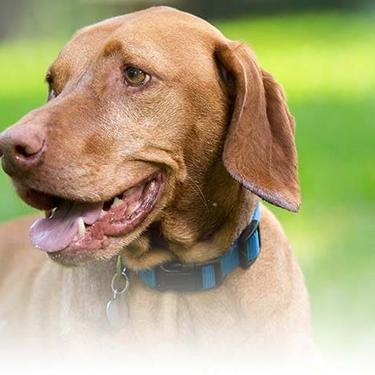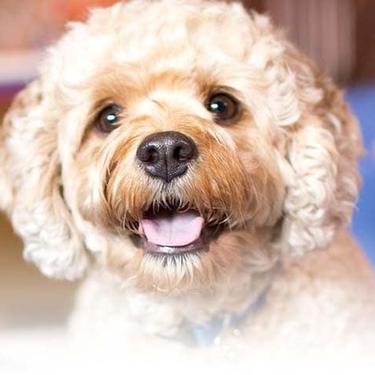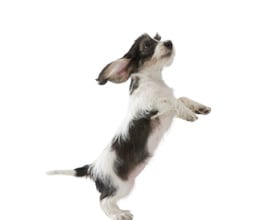
-
Find the right food for your pet
Take this quiz to see which food may be the best for your furry friend.
Find the right food for your pet
Take this quiz to see which food may be the best for your furry friend.
Featured products
 Adult 7+ Perfect Digestion Chicken, Whole Oats & Brown Rice Recipe Dog Food
Adult 7+ Perfect Digestion Chicken, Whole Oats & Brown Rice Recipe Dog FoodScience Diet's breakthrough nutrition supports ultimate digestive well-being & healthy microbiome for dogs age 7+
Shop Now Adult Healthy Cuisine Roasted Chicken, Carrots & Spinach Stew Dog Food
Adult Healthy Cuisine Roasted Chicken, Carrots & Spinach Stew Dog FoodDelicious roasted chicken paired with tender vegetables in a succulent stew
Shop Now Small & Mini Savory Stew with Chicken & Vegetables Dog Food
Small & Mini Savory Stew with Chicken & Vegetables Dog FoodA delicious complement to the nutrition of Science Diet Small & Mini 7+ dog food
Shop NowFeatured products
 Adult Savory Entrée Can Variety Pack Cat Food
Adult Savory Entrée Can Variety Pack Cat FoodPrecisely balanced nutrition with the delicious taste of savory minced chicken to help fuel the energy needs of cats during the prime of their life
Shop Now Adult 7+ Tender Tuna Dinner Cat Food
Adult 7+ Tender Tuna Dinner Cat FoodWith delicious chunks in a decadent gravy
Shop Now Adult 7+ Senior Vitality Chicken & Vegetable Stew Cat Food
Adult 7+ Senior Vitality Chicken & Vegetable Stew Cat FoodImproves Everyday Ability to Get Up & Go
Shop Now -
Dog
- Dog Tips & Articles
-
Health Category
- Weight
- Food & Environmental Sensitivities
- Urinary
- Digestive
- Joint
- Kidney
-
Life Stage
- Puppy Nutrition
- Adult Nutrition
- Senior Nutrition
Cat
- Cat Tips & Articles
-
Health Category
- Weight
- Skin & Food Sensitivities
- Urinary
- Digestive
- Kidney
-
Life Stage
- Kitten Nutrition
- Adult Nutrition
Featured articles
 Why Are Dogs and Cats So Cute?
Why Are Dogs and Cats So Cute?If waggy puppy dog tails and furry kitten yawns make you swoon, you're not alone. Why are cats so cute? And, dogs too! Let's find out!
Read More Does My Pet Hate Me?
Does My Pet Hate Me?Learn tips for bonding with your pet if you've ever thought, 'My dog doesn't like me, or 'Why do I have a standoffish cat?'
Read More Do Dogs and Cats have Belly Buttons?
Do Dogs and Cats have Belly Buttons?Learn whether cats & dogs have belly buttons like humans, what the function is, and if there are any health concerns associated with it.
Read More -


Don't let your cute puppy turn into an aggressive dog
A lot of people think dogs bite "because that's what they do". But dogs don't become aggressive without good reason, and most dogs express aggression because they find themselves in a stressful situation. So it stands to reason that the best way to prevent your puppy from becoming an angry or aggressive dog later is to help him to avoid or tolerate stressful situations. You should learn to recognize signs of fear such as being backed into a corner, or being restricted by his lead.
Fear is the common factor
To become afraid, dogs don't necessarily need to have had a nasty experience. Dogs that are fear-stricken are those that don't get the opportunity to socialize with enough people. So socialization is very important - for advice on socialization click here. If your puppy is brought up to see people (grown-ups and children alike) as providers of fun, praise and treats, they won't need to display threatening behaviour.
You should also expose your puppy to noises and situations that might frighten them from a young age, to help them overcome their fears. Then potentially scary things, like the vacuum cleaner, traffic or the postman, become everyday occurrences they take in their stride.


Tasty Tips
Your puppy and other people
All people are different, whether they're friends, family or strangers - and in the eyes of a puppy, the different ages, shapes and sizes we humans come in can be mightily confusing. So make sure he encounters as many people as possible from an early age. That way, strangers will seem less strange and he'll soon learn to become calmer and more trusting. Just make sure all these new friends don't overwhelm him with vigorous displays of affection.
It's also important that your puppy becomes acquainted with children. Few youngsters can resist fussing over a puppy and although they mean no harm, this can be alarming for the dog. It's a good idea to take your puppy for a walk near the local school; children will need no encouragement to come up and say hello. But don't forget that puppies can become tired quickly, so make sure any meeting times are kept quite short and give your puppy time to rest.
Play-biting shouldn't get out of hand
Before you collected your new puppy, he was used to playing with his own brothers and sisters. And play-biting is a puppy's natural game. So once he's settled into his new home, he'll want to play-bite with you. But to curb excessive biting, you'll need to divert his attention away from your hands to his toys.
The chances are, whenever you spend time with your puppy, stroking and making a fuss of him, he'll want to chew on your hand, so make sure you have one of his toys ready. Make it hard for him to bite your hand by making a fist and offer a toy instead, waving and ,wiggling it around him. It won't be long before he learns that toys are lot more fun to play with and chew than a big fist.
Your puppy only knows what you teach him
It's important to remember that whatever you teach your puppy now will be normal behaviour for your grown dog. So when he's playing as a puppy, try thinking of him as a mature dog, and judge whether his behaviour is acceptable or otherwise. If he starts growling, or attempting to bite a hand holding a toy, or rushing a young child during play, stop the game at once and walk away with the toy. He'll soon learn why the fun stopped and avoid the behaviour that caused it.
If you have any concerns about your puppy's behaviour, or would like more information about available books, training courses or classes, your vet will be pleased to advise you.


One of our staff authors prepared this article for you
Related products

Science Diet's breakthrough nutrition supports ultimate digestive well-being & healthy microbiome for dogs age 7+

Delicious roasted chicken paired with tender vegetables in a succulent stew

Delicious braised beef paired with tender vegetables in a succulent stew

A delicious complement to the nutrition of Science Diet Small & Mini 7+ dog food
Related articles

Large and giant breed puppies have different nutritional needs than other dogs. Learn how to provide the special care they need to grow up big and strong.

Hill's Science Diet Small & Toy Breed dog foods are designed to meet the nutritional needs for your small dog at every life stage. Learn more here.

Learn about choosing the right food for your mature or older dog, ensuring he receives the correct balance of nutrition.

Your dog's coat and skin are a big part of your dog's overall health. Ensure you keep your dog's coat healthy, by following these simple tips.

Put your dog on a diet without them knowing
Our low calorie formula helps you control your dog's weight. It's packed with high-quality protein for building lean muscles, and made with purposeful ingredients for a flavorful, nutritious meal. Clinically proven antioxidants, Vitamin C+E, help promote a healthy immune system.
Put your dog on a diet without them knowing
Our low calorie formula helps you control your dog's weight. It's packed with high-quality protein for building lean muscles, and made with purposeful ingredients for a flavorful, nutritious meal. Clinically proven antioxidants, Vitamin C+E, help promote a healthy immune system.


